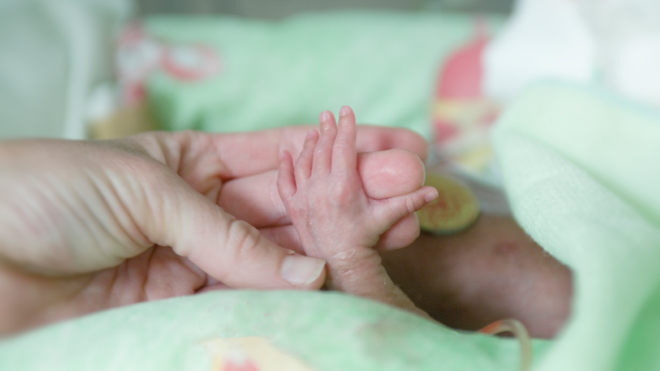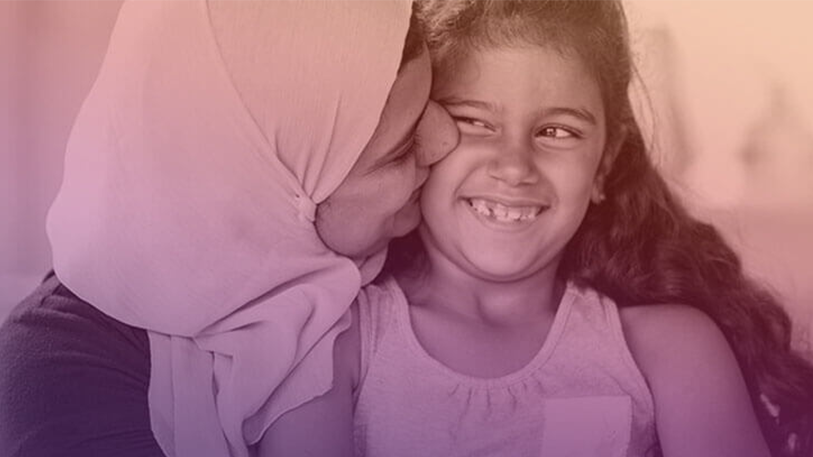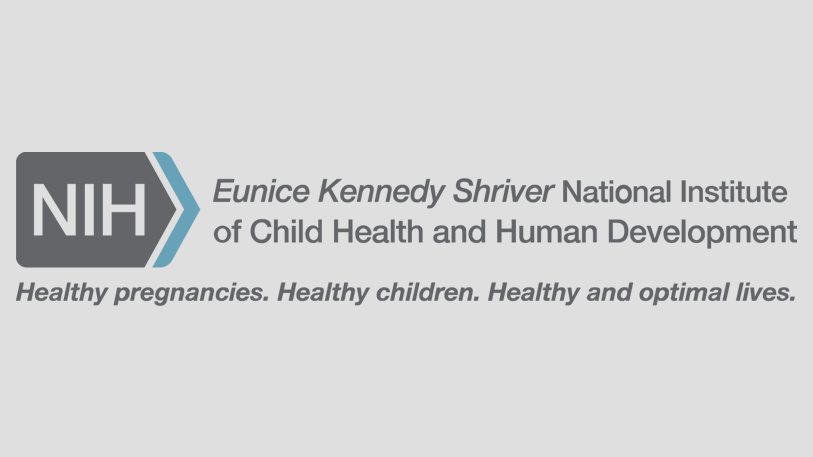
When a woman uses opioids during pregnancy, her baby can be born physically dependent on the drugs. Every year in the United States, tens of thousands of babies are exposed to opioids during pregnancy. Many show signs of withdrawal after birth, such as extreme irritability and problems eating and sleeping. Yet there are few standard, evidence-based treatments for neonatal opioid withdrawal syndrome, or NOWS, and little is known about its long-term effects.
“What’s happened with these babies, from the beginning, is that every hospital just does their own thing,” said Stephanie Merhar, M.D., M.S., a neonatologist and researcher at Cincinnati Children’s Hospital Medical Center. Practitioners make their own decisions based on experience, she said, and that experience may lead them to different conclusions.
“The best care is not being given, because things are not standardized — because nobody really knows,” Merhar said.
Merhar is involved in Advancing Clinical Trials in Neonatal Opioid Withdrawal (ACT NOW), a research program conducting three large-scale studies at hospitals across the country. The program aims to test the ways babies with NOWS are assessed, treated, and followed long-term, so that the infants can get the best possible care.
ACT NOW is part of the Helping to End Addiction Long-term® Initiative, or NIH HEAL Initiative®, and its effort to find the best approaches to address the medical and social needs of children with early exposure to opioids.
Advancing Clinicals Trials for Neonatal Opioid Withdrawal (ACT NOW)
Early life and medication
Babies aren’t technically born “addicted” to drugs, since they can't engage in compulsive drug seeking or continued use despite harmful consequences, hallmarks behaviors of an addiction disorder. However, newborns can be physically dependent on opioids, and go into withdrawal, just like adults.
“If mom has been on a very short-acting opioid, like heroin or fentanyl, some of the babies will actually come out in withdrawal, which is really sad to see,” Merhar said. Right at birth, those babies can be rigid and inconsolable.
One way to help babies with NOWS is with medication. The most commonly used medications, morphine and methadone, are opioids themselves. The babies are given lower and lower doses of the medication to wean them from opioid dependence. However, it is not clear how best to do this.
“It’s just really based on the hospital’s preference,” Merhar said. Each hospital has its own usual practice — which medications to use, at which dose to start, when to start weaning the babies, and how quickly to wean them, she said.
That’s why one of ACT NOW’s current studies is a clinical trial on weaning, the ACT NOW Trial to Shorten Pharmacologic Treatment of Newborns with NOWS, to test how best to decrease babies’ medication dose.
Many infants with NOWS require long hospital stays, intensive medication and management, and ongoing social services or foster care placement. In addition to the human consequences, the economic costs of caring for babies with NOWS are significant. The ACT NOW weaning study seeks to determine whether decreased medication doses enhance infants’ outcomes, with the added benefit of reducing their healthcare costs.
Eat, sleep, console
It is possible to get some babies through withdrawal without medication, Merhar said. Her teams leads a study called the ACT NOW Eat, Sleep, Console (ESC) Clinical Trial. The ESC study is testing a non-medication treatment for NOWS in about two dozen hospitals nationwide by getting families involved as much as possible in addressing NOWS by comforting the babies and helping them eat and sleep.
The ESC study is testing a simple way of assessing the severity of NOWS using a scale that focuses on three main factors: whether the baby can eat; whether the baby can sleep for at least an hour after eating; and whether the baby can be consoled within 10 minutes of starting to cry because of NOWS (rather than hunger or some other issue). The baby is with their mother if possible, in a dark, quiet room, enhancing focus on the baby instead of her symptoms. This approach, which simplifies the assessment of infants with NOWS, and focuses interventions on non-pharmacologic therapies, has shown promising results. HEAL seeks to provide key evidence of safety and effectiveness to help inform clinical guidance.
Currently, hospitals use different scales for assessing the severity of NOWS. For this study, each hospital will first collect data on babies using its existing NOWS evaluation scale. After the staff is trained in the ESC method, a date will be set for the entire hospital to switch to ESC. The researchers will compare the wellbeing of babies treated at the same hospital before and after the switch to ESC. The researchers hope to follow the babies in the weaning study and the ESC study until they are two years old to determine how the ESC protocol affected the infants’ long-term development.
Following babies over time
ACT NOW’s third study will be long-term — the ACT NOW Longitudinal Study. The study team plans to enroll a minimum of 200 babies born to mothers who used opioids during pregnancy and another 100 who were not exposed to opioids as a comparison group. All babies will be followed until at least age 2.
The researchers will analyze tissue from the umbilical cords to determine the babies’ opioid exposure in the second half of pregnancy. Soon after birth, and again at 6 and 24 months, each youngster will have a brain MRI scan and researchers will assess the children’s motor skills, thinking, language, and behavior.
Carla Bann, Ph.D., a researcher at RTI International, is leading the ACT NOW Longitudinal Study. She looks forward to understanding much more about how opioid exposure affects children over the long term. With better information about the problems that occur later, in childhood, she said, it might be possible to arrange early help, like physical or speech therapy.
“That would really be my hope — not just to say, ‘Oh, yes, there are these effects,’ but to take that and target our interventions, to help improve their lives later on,” Bann said.
According to Merhar, the ACT NOW studies have the potential to make a big difference to many babies in the United States every year.
“I don’t think we’re going to come up with some amazing cure, but I do think there are going to be things that can help these kids have better outcomes,” she said.
Fusion of networks
ACT NOW’s research is possible because the NIH HEAL Initiative is bringing together two existing networks of many institutions that specialize in pediatric research.
The Neonatal Research Network (NRN) is funded by the Eunice Kennedy Shriver National Institute of Child Health and Human Development. For more than 30 years, the network has conducted research in neonatal intensive care units (NICUs), where, usually, babies with NOWS spend at least a few days. The institutions in the network collaborate to answer questions such as how best to help premature babies with breathing problems.
The IDeA States Pediatric Clinical Trials Network (ISPCTN), a component of the NIH Environmental influences on Child Health Outcomes (ECHO) Program, is part of NIH’s Institutional Development Award (IDeA) program. ECHO investigators study the effects of a broad range of early environmental influences on child health and development. The ISPCTN builds research capacity in states that historically have had low levels of NIH funding, including rural states.
The collaboration between these two networks contributes to develop standards of care to tackle NOWS in any setting. The NRN is experienced in research with very sick babies. However, many of its institutions are in areas less affected by the opioid crisis; while the ISPCTN institutions, newer to research with babies, see many with NOWS, because they serve areas hard hit by the crisis.


Find More Projects in This Research Focus Area
Explore programs and funded projects within the Enhanced Outcomes for Infants and Children Exposed to Opioids research focus area.

Eunice Kennedy Shriver National Institute of Child Health and Human Development (NICHD)
Learn more about NICHD’s role in the NIH HEAL Initiative.
 U.S. Department of Health & Human Services
U.S. Department of Health & Human Services
